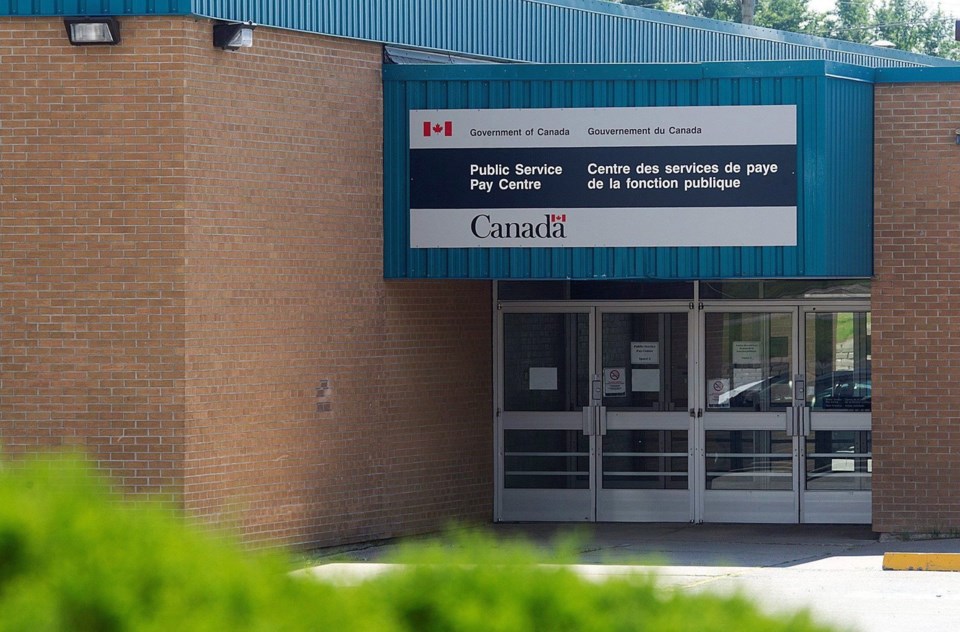OTTAWA — The federal government's troubled attempt to modernize its pay system will be probed by the federal auditor general as the government begins its move to another new payroll program.
Ottawa announced in June it had awarded a 10-year contract to Dayforce for almost $351 million, to replace the Phoenix payroll system that has caused significant problems. The contract allows for a possible extension to 20 years.
Claire Baudry, a spokesperson for the Office of the Auditor General of Canada, said the report is expected to be tabled in Parliament in 2026. She said decisions about the scope and timing of the audit were not yet available.
The Phoenix pay system was introduced in 2009 at an initial cost of $309 million and began processing public servants' pay in 2016.
Problems with Phoenix began to show up almost immediately, leading to widespread errors on employees’ paycheques and delays in payments. The government has sought to tackle these issues by hiring more compensation agents and using artificial intelligence.
A top federal official said in June that fixing the payroll problems caused by Phoenix cost taxpayers more than $5 billion — and that the government will keep paying to run two public service payroll platforms at once as Ottawa weans itself off the trouble-prone system.
Jeremy Link, a spokesperson for Public Services and Procurement Canada, told The Canadian Press in an email that, over the next two years, the department plans to identify specific conditions that need to be met before departments can introduce Dayforce. Those include a reduction in the backlog of unprocessed payments.
Link said the government is trying to deploy the new system "incrementally through a number of waves," with a limited number of departments onboarding to the new system at a time.
"Based on the work completed to date, the current parameters indicate that all backlog cases must be resolved before migration," Link said, adding that the department is working to determine whether certain types of cases could be excluded.
Link said the exact timing of Dayforce's deployment is still to be determined and will depend on how much work gets done over the next two years.
Sharon DeSousa, national president of the Public Service Alliance of Canada, said the union welcomes a "deep, independent" inquiry into the federal pay system.
She said this is something PSAC has been calling for "since day one."
"Nearly 10 years later, the government’s pay fiasco is still failing federal workers, and we’re still years away from a new pay system," DeSousa said. "No one should have to live with the constant anxiety of wondering if their pay is accurate, whether they can cover their rent, groceries, or bills."
"It’s long past time to fix this broken pay system. Another decade of failure is not an option.”
The auditor general has looked into Phoenix pay problems twice before. In 2017 it concluded that Public Services and Procurement Canada failed to identify and solve pay problems in a way that meant employees got their correct pay, on time.
In 2018, after digging deeper into how Phoenix was implemented, the auditor concluded that the Phoenix project was "an incomprehensible failure of project management and oversight." It said Phoenix executives prioritized certain aspects, like schedule and budget, over critical ones, like functionality and security.
The 2018 report said Phoenix has not met user needs, has cost the federal government hundreds of millions of dollars and has financially affected tens of thousands of its employees.
Nathan Prier, president of the Canadian Association of Professional Employees, said he expects the latest audit "will just emphasize what we already know: the government has fallen way behind on its promise to fix this debacle, and federal workers are still years away from being able to count on their paycheque."
In 2024, Prier said more than 800 CAPE members were still dealing with Phoenix issues, a number that has gone up over the past two years.
"Nearly one-third of the federal workforce continues to experience pay problems, either being overpaid, underpaid or not paid at all," Prier said in an email. "This has meant thousands of people have not been able to pay their mortgage or their rent, seen their credit scores plummet, and faced significant tax issues."
Beyond those who have had their pay directly impacted, Prier said "every public sector employee now must think twice before changing jobs or accepting a promotion in fear of being caught up in a Phoenix mess."
— With files from Kyle Duggan
This report by The Canadian Press was first published Aug. 25, 2025.
Catherine Morrison, The Canadian Press



